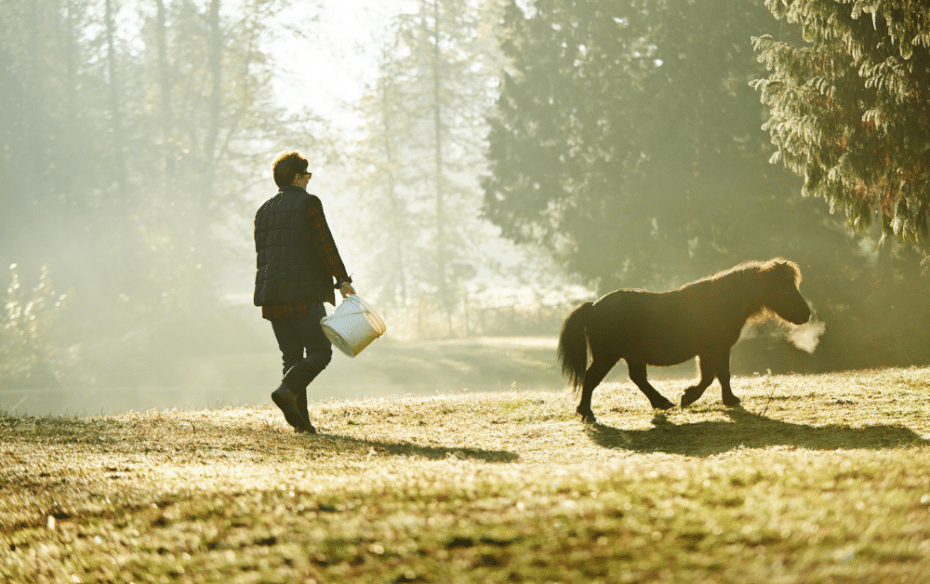Call Us At 519.672.5666
Insights & Articles
Who Gets the Pony Farm: A B.C. Supreme Court Case Offers Key Lessons for Estate Planning

A will offers certainty, at least that’s the idea. There is tremendous comfort in knowing that one’s wishes will be respected after one’s gone. But, in some rare cases, a person may find that they have contracted away the right to change their mind about who inherits their property.
The Supreme Court of British Columbia recently ruled on the case of Munro v James. Like all interesting cases, this is also an interesting story. Munro v James involves a couple, Fonda Munro and Bruce Boughey, an elderly woman, Jessie James, several ponies, and a farm.
Munro v James should be a reminder to all that getting legal advice when planning your estate matters is crucial. Otherwise, there is a risk that one’s will won’t be the final word, and relationships can change over time.
An Agreement Between Equestrians
Ms. James met Ms. Munro through the Welsh Pony Club of Vancouver Island. They participated in pony shows together and became friends. Unfortunately, Ms. James and Ms. Munro would, in time, come to find themselves defendant and plaintiff in a protracted court case.
In 2007 the elderly defendant, Ms. James, entered into a contract with the plaintiffs—Ms. Munro and her husband, Mr. Boughey—with the couple agreeing to reside on Ms. James’ farm on Vancouver Island. In return, the plaintiffs agreed to manage the farm and to care for Ms. James’ ponies during her lifetime. The agreement allowed for the plaintiffs to inherit Ms. James’ estate, including the farm, upon her passing.
Trusting the agreement, the plaintiffs sold their house, built a new home on the farm, and managed the property for over a decade.
Unfortunately for the plaintiffs, Ms. James subsequently changed her will to exclude them as the beneficiaries, leaving the entire estate to her friend. Ms. James notified the plaintiffs of the change to her will and demanded that they leave the farm.
The Couple Takes Ms. James to Court
Almost immediately, the plaintiffs, Ms. Munro and Mr. Boughey commenced a court proceeding seeking various relief, with the goal to enforce the agreement to remain on the farm and inherit the estate, upon Ms. James’ passing.
The trial took place over nearly two weeks in total court time during February and June 2020 with multiple witnesses attending. Much of the focus appears to have been the short written agreement drafted by the parties, including the final term of the agreement that, “Upon the death of the Owner [Ms. James], the Managers [the plaintiffs] will inherit her entire estate.”
The Court’s Decision
The court found that, when Ms. James changed her will and notified the plaintiffs of her intention to terminate the agreement, she committed an anticipatory breach. With this finding, the court then considered the appropriate remedy.
Could the court order Ms. James to change her will, thus keeping her from deciding who should inherit her estate? The answer is, effectively, yes!
The court also ordered Ms. James not to dispose of or further encumber the farm (such as mortgaging the property) or sell it, without the plaintiffs’ consent to make sure it’s still there when Ms. James passes away.
The Takeaway for Estate Planning
The real lesson of this case, in terms of estate planning, is that agreements have consequences and it is important to understand the terms of a contract. A person has the right to choose who should be their beneficiaries when drafting a will (subject to some exceptions) and to subsequently change their mind and write a new will. Unless they have signed a contract that overrides this right. That “unless” is rare, but it does happen, as this case illustrates. The surest way to avoid unexpected issues is to obtain advice from a knowledgeable estate lawyer.
If you have any questions with regard to Wills and Estates, contact a member of the Wills, Estates & Trusts Law team.

